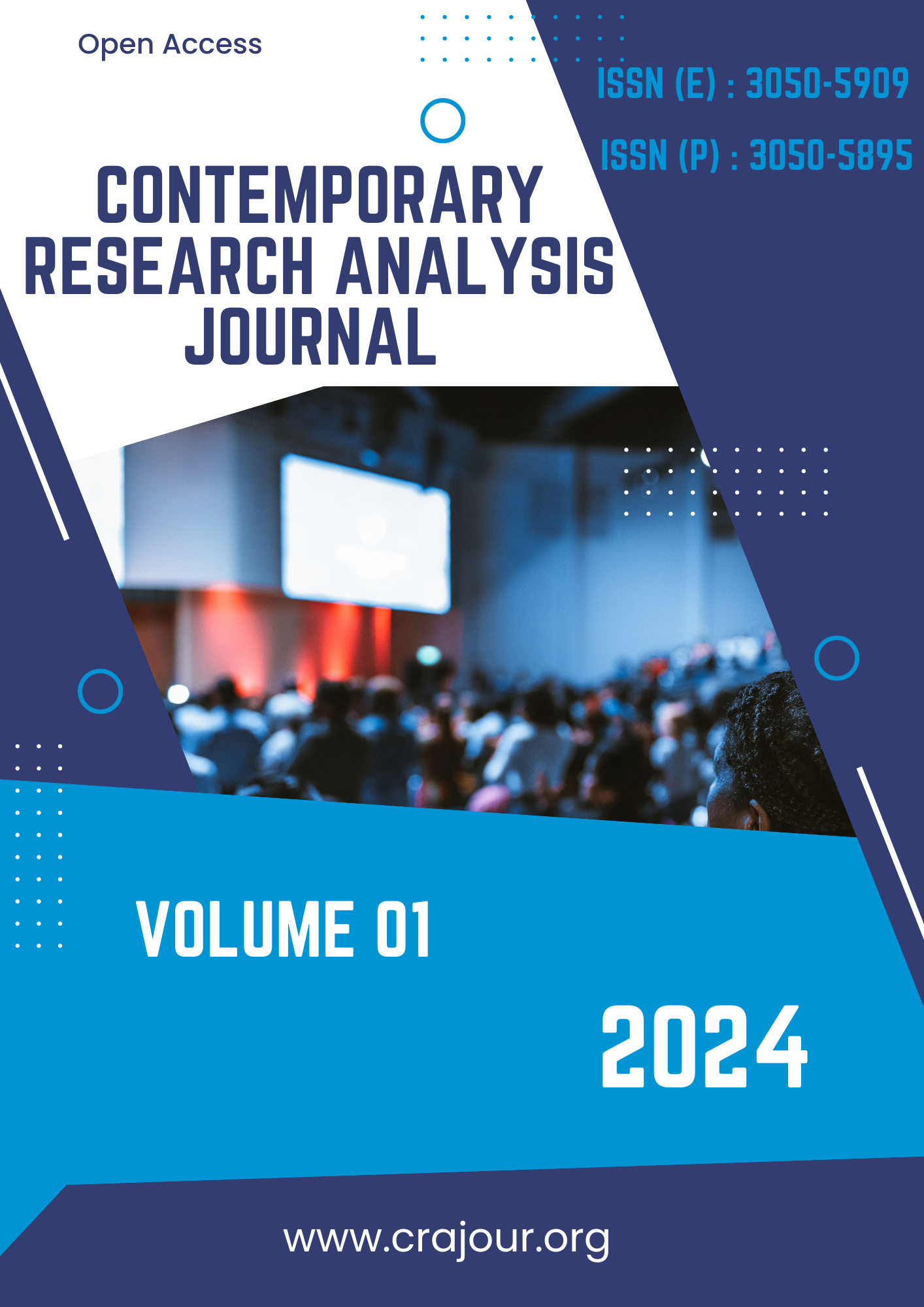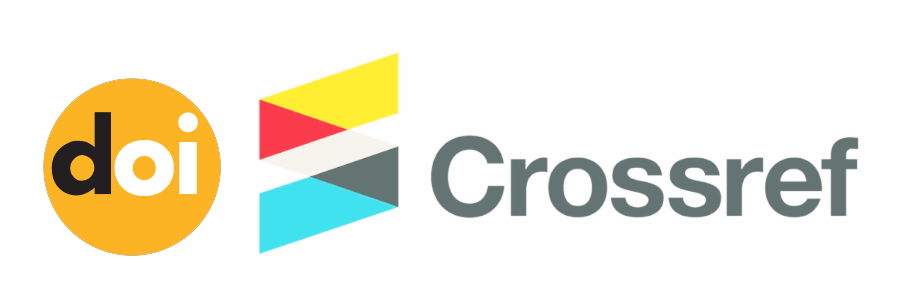Academic Procrastination and Burnout among Grade 11 Students
DOI:
https://doi.org/10.55677/CRAJ/05-2024-Vol01I3Keywords:
academic procrastination, burnout, Grade 11 students, descriptive-correlational studyAbstract
This study aimed to determine the significant relationship between academic procrastination and burnout. Simple random sampling was used, and it included 53 students. Through non-experimental quantitative descriptive-correlational research technique, validated questionnaire, Mean, Pearson-Product Moment Correlation Coefficient (Pearson-r), and Simple Linear Regression, results showed that the level of academic procrastination was moderate or sometimes manifested. It was also found that the level of student burnout was moderate or sometimes manifested. There was a significant relationship between academic procrastination and burnout. This means that students who frequently put things off are more likely to experience feelings of exhaustion, cynicism, and a sense of inadequacy related to their studies. Accordingly, academic procrastination significantly influences student’s burnout. School officials were recommended to implement a multi-tiered policy to address student procrastination and burnout.
References
Abreu Alves, S., Sinval, J., Lucas Neto, L., Marôco, J., Gonçalves Ferreira, A., & Oliveira, P. (2022). Burnout and dropout intention in medical students: the protective role of academic engagement. BMC Medical Education, 22(1), 83.
Araya-Castillo, L., Burgos, M., González, P., Rivera, Y., Barrientos, N., Yáñez Jara, V., ... & Sáez, W. (2023). Procrastination in university students: A proposal of a theoretical model. Behavioral Sciences, 13(2), 128.
Bacala, S. A., Abordaje, J. L., Labrador, L. M., Bacatan, R. J., & Bacatan, J. (2024). The Influence of Service Quality on Customer Engagement in Kaputian Beach Park. Cognizance Journal of Multidisciplinary Studies, 4(1), 332-338.
Balkıs, M. (2013). The relationship between academic procrastination and students' burnout. Hacettepe Üniversitesi Eğitim Fakültesi Dergisi, 28(28-1).
Balkis, M., & Duru, E. (2022). The examining psychometric characteristics of Academic Procrastination Scale-Short Form. Pamukkale Universitesi Egitim Fakultesi Dergisi-Pamukkale University Journal Of Education.
Bakker, A. B., & Demerouti, E. (2007). The job demands‐resources model: State of the art. Journal of managerial psychology, 22(3), 309-328.
Basith, A., Rahman, M. S., & Moseki, U. R. (2023). Academic Burnout in Vocational High School Students. International Journal of Multi Discipline Science (IJ-MDS), 6(1), 10-17.
Baumeister, R. F., & Heatherton, T. F. (1996). Self-regulation failure: An overview. Psychological inquiry, 7(1), 1-15.
Baykul, Y. (1999). İstatistik: Metodlar ve uygulamalar. Anı Yayıncılık.
Bhandari, P. (2023, June 22). Correlational Research | When & How to Use. Scribbr. Retrieved May 14, 2024, from https://www.scribbr.com/methodology/correlational-research/
Bobe, J., Schnettler, T., Scheunemann, A., Fries, S., Bäulke, L., Thies, D. O., ... & Grunschel, C. (2022). Delaying academic tasks and feeling bad about it: Development and validation of a six-item scale measuring academic procrastination. European Journal of Psychological Assessment.
Cherry, K. (2023, May 4). Correlation studies in psychology research. Verywell Mind. https://www.verywellmind.com/correlational-research-2795774
Delice, A. (2010). The Sampling Issues in Quantitative Research. Educational Sciences: Theory and Practice, 10(4), 2001-2018.
Ghimire, A., Adhikari, K., Subba, R., Sharma, B., Nepal, S., & Thapa, T. (2022). Academic Burnout among Students Studying in Selected Secondary School of Chitwan. MedS Alliance Journal of Medicine and Medical Sciences, 2(3), 28-32.
González-Brignardello, M. P., Sánchez-Elvira Paniagua, A., & López-González, M. Á. (2023). Academic procrastination in children and adolescents: A Scoping review. Children, 10(6), 1016.
Haycock, L. A., McCarthy, P., & Skay, C. L. (1998). Procrastination in college students: The role of self‐efficacy and anxiety. Journal of counseling & development, 76(3), 317-324.
Heatherton, T. F., & Wagner, D. D. (2011). Cognitive neuroscience of self-regulation failure. Trends in cognitive sciences, 15(3), 132-139.
Hosseinpour Kharrazi, F., & Ghanizadeh, A. (2023). The interplay among EFL learners’ academic procrastination, learning approach, burnout, and language achievement. The Asia-Pacific Education Researcher, 1-10.
Hurley, K. (2003). Trait procrastination, time management, and academic behaviour. Journal of Sodat Behaviour and Personality, 8(6), 47-66.
Jackson, T., Weiss, K. E., Lundquist, J. J., & Hooper, D. (2003). The Impact Of Hope, Procrastination, And Social Activity On Academic Performance Of Midwestern College Students. Education, 124(2).
Jochmann, A., Gusy, B., Lesener, T., & Wolter, C. (2024). Procrastination, depression and anxiety symptoms in university students: a three-wave longitudinal study on the mediating role of perceived stress. BMC psychology, 12(1), 276.
Kim, Y., & Park, K. (2023). The Relationship between Smartphone Addiction Tendencies and Academic Burnout in (under)Graduate Student: The Mediating Effects of Sleep Quality and Academic Procrastination. Korean Association For Learner-Centered Curriculum And Instruction.
Kirschenbaum, D. S. (1987). Self-regulatory failure: A review with clinical implications. Clinical Psychology Review, 7(1), 77-104.
Klassen, R. M., Krawchuk, L. L., & Rajani, S. (2008). Academic procrastination of undergraduates: Low self-efficacy to self-regulate predicts higher levels of procrastination. Contemporary educational psychology, 33(4), 915-931.
Kurniadin, D., Rukanda, N., & Irmayanti, R. (2023). STUDI DESKRIPTIF PROKRASTINASI AKADEMIK SISWA. FOKUS (Kajian Bimbingan & Konseling dalam Pendidikan), 6(3), 162-168.
Lacson, A. J., Dimacali, C. A., Mora, D., Magos, M., & Salmorin, J. (2023). The Relationship Between Academic Burnout and Academic Procrastination Among Grade 12 Senior High School Students in a Private School. Psychology and Education: A Multidisciplinary Journal, 11(5), 1-1.
Lay, C. H. (1986). At last, my research article on procrastination. Journal of research in personality, 20(4), 474-495.
Lay, C. H., & Burns, P. (1991). Intentions and behavior in studying for an examination: The role of trait procrastination and its interaction with optimism. Journal of Social Behavior and Personality, 6(3), 605.
Lee, M., Lee, K. J., Lee, S. M., & Cho, S. (2020). From emotional exhaustion to cynicism in academic burnout among Korean high school students: Focusing on the mediation effects of hatred of academic work. Stress and Health, 36(3), 376-383.
Logenio, M. T. M., Godin, J. L., Paguio, A., Germar, R. A., Dablo, J. C., & Francisco, M. A. (2023). Procrastination and Academic Burnout Among Grade 12 Students in a Public School: A Correlational Study. Psychology and Education: A Multidisciplinary Journal, 11(6), 601-608.
Madigan, D. J., & Curran, T. (2021). Does burnout affect academic achievement? A meta-analysis of over 100,000 students. Educational Psychology Review, 33, 387-405.
Maloloy-on, E., Aquino, A. S., Marcelino, M. M., Mateo, M., Plaza, C. A., Endrina, S., & Tus, J. (2023). Procrastination and Its Relationship to the Academic Burnout of First-Year College Students in a State University.
Maslach, C., & Leiter, M. P. (1999). Burnout and engagement in the workplace: A contextual analysis. Advances in motivation and achievement, 11, 275-302.
Maslach, C., & Leiter, M. P. (2016). Burnout. In Stress: Concepts, cognition, emotion, and behavior (pp. 351-357). Academic Press.
Maslach, C., Schaufeli, W. B., & Leiter, M. P. (2001). Job burnout. Annual review of psychology, 52(1), 397-422.
Monteroso Jr, C., Hugo, A., & Bacatan, J. (2023). Total Quality Management Practices, Managerial Capabilities of School Administrators and Performance of Public Junior High School Teachers. Cognizance Journal of Multidisciplinary Studies, 3(12), 221-337.
Morales, J. B., Llanes, W. L. L., Cabaluna, J. M. M., Cordero Jr, R. D., & Bacatan, J. R. Analyzing the Relationship Between the Sense of Efficacy and Technological Pedagogical Content Knowledge of Teachers. Indonesian Journal of Multidiciplinary Research, 4(1), 99-108.
Noor, S., Tajik, O., & Golzar, J. (2022). Simple random sampling. International Journal of Education & Language Studies, 1(2), 78-82.
Norez, D. (2017). Academic burnout in college students: The impact of personality characteristics and academic term on burnout.
Olson, N., Oberhoffer-Fritz, R., Reiner, B., & Schulz, T. (2023). Study related factors associated with study engagement and student burnout among German university students. Frontiers in Public Health, 11, 1168264.
Özhan, M. B., & Yüksel, G. (2021). The effect of school burnout on academic achievement and well-being in high school students: A holistic model proposal. International Journal of Contemporary Educational Research, 8(1), 145-162.
Pintrich, P. R., & De Groot, E. V. (1990). Motivational and self-regulated learning components of classroom academic performance. Journal of educational psychology, 82(1), 33.
Purnomo, A. W. A., Wibowo, A. E., Kurniawan, K., & Setyorini, S. (2020). The relationship between smartphone addiction, academic burnout and academic procrastination among university students during online learning. Psikopedagogia Jurnal Bimbingan Dan Konseling, 9(2), 81-86.
Qu, R., Ding, N., Li, H., Song, X., Cong, Z., Cai, R., ... & Wen, D. (2022). The mediating role of general academic emotions in burnout and procrastination among Chinese medical undergraduates during the COVID-19 pandemic: A cross-sectional study. Frontiers in Public Health, 10, 1011801.
Ramzi, F., & Saed, O. (2019). The roles of self-regulation and self-control in procrastination. Psychol Behav Sci Int J, 13(3), 555863.
Rosales-Ricardo, Y., & Ferreira, J. P. (2022). Effects of physical exercise on Burnout syndrome in university students. MEDICC review, 24, 36-39.
Ross, S. M. (2020). Introduction to probability and statistics for engineers and scientists. Academic press.
Ruy, B. T., Barbosa, A. C. M., Neto, P. P. M. F., Teixeira, V. D. S. M., Santos, M. C. S., Zuim, N. L., ... & de Abreu, J. V. (2023). Burnout syndrome in medicine students: an integrative literature review. Seven Editora, 1882-1892.
Salmela-Aro, K., Kiuru, N., Leskinen, E., & Nurmi, J. E. (2009). School burnout inventory (SBI) reliability and validity. European journal of psychological assessment, 25(1), 48-57.
Saplavska, J., & Jerkunkova, A. (2018, May). Academic procrastination and anxiety among students. In 17th International Scientific Conference Engineering for Rural Development (pp. 23-25).
Sari, P., Kholidin, F. I., & Edmawati, M. D. (2020). Tingkat kejenuhan belajar siswa sekolah menengah pertama di kota bandar lampung. Journal of Guidance and Counseling Inspiration (JGCI), 1(1), 45-52.
Schaufeli, W. B., Bakker, A. B., Van der Heijden, F. M., & Prins, J. T. (2009). Workaholism, burnout and well-being among junior doctors: The mediating role of role conflict. Work & Stress, 23(2), 155-172.
Steel, P. (2007). The nature of procrastination: a meta-analytic and theoretical review of quintessential self-regulatory failure. Psychological bulletin, 133(1), 65.
Tuckman, B. W. (1991). The development and concurrent validity of the procrastination scale. Educational and psychological measurement, 51(2), 473-480.
van Eerde, W., & Klingsieck, K. B. (2018). Overcoming procrastination? A meta-analysis of intervention studies. Educational Research Review, 25, 73-85.
Wang, Y., Gao, H., Liu, J., & Fan, X. L. (2021). Academic procrastination in college students: The role of self-leadership. Personality and Individual Differences, 178, 110866.
Wiwatowska, E., Pietruch, M., Katafoni, P., & Michałowski, J. M. (2023). “I can't focus now, I will study tomorrow”-The link between academic procrastination and resistance to distraction. Learning and Individual Differences, 107, 102364.
Xu, S. (2021). Academic procrastination of adolescents: A brief review of the literature. online learning, 21(39), 79.
Xu, J., & Ba, Y. (2022). Coping with students’ stress and burnout: learners’ ambiguity of tolerance. Frontiers in Psychology, 13, 842113.
Yıldırım, A. & Şimşek, H. (2006). Sosyal bilimlerde nitel araştırma yöntemleri (6. bs.). Ankara: Seçkin
Zhou, M., Ye, B., Mynbayeva, A., Yong, L., & Assilbek, N. (2024). A cross-cultural comparison of academic burnout among Chinese and Kazakhstani secondary students. Current Psychology, 1-13.
Zimmerman, B. J. (2012). Goal setting: A key proactive source of academic self-regulation. In Motivation and self-regulated learning (pp. 267-295). Routledge.
Downloads
Published
Issue
Section
License
Copyright (c) 2024 Contemporary Research Analysis Journal

This work is licensed under a Creative Commons Attribution 4.0 International License.



